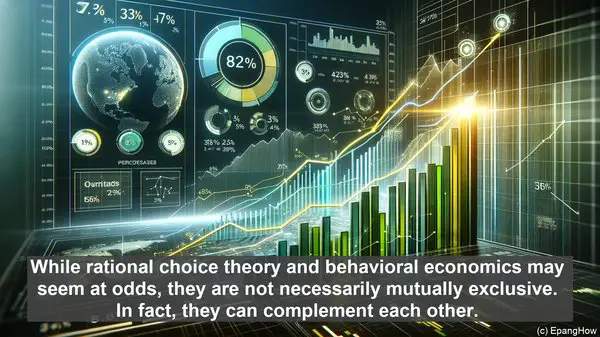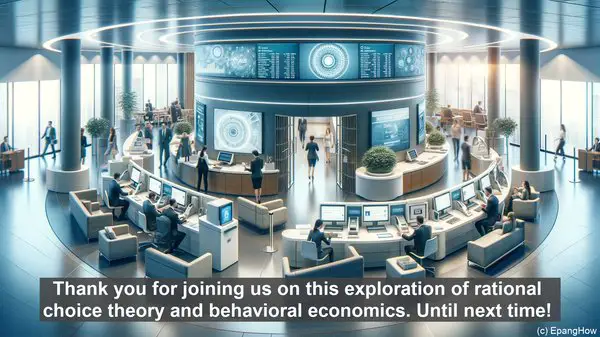Introduction: Two Perspectives on Decision-Making
Greetings, audience! When it comes to understanding how individuals make decisions, two prominent frameworks emerge: rational choice theory and behavioral economics. While they both aim to explain human behavior, they do so from distinct angles. Let’s dive deeper into their divergent principles and explore their real-world implications.

Rational Choice Theory: The Assumption of Rationality
Rational choice theory, often associated with classical economics, posits that individuals are rational actors who make decisions based on a careful weighing of costs and benefits. This framework assumes that people have well-defined preferences and seek to maximize their utility. It also assumes perfect information and a consistent decision-making process. In essence, rational choice theory views decision-making as a logical, calculated process.
Behavioral Economics: The Influence of Psychology
On the other hand, behavioral economics incorporates insights from psychology, recognizing that human decision-making is often influenced by cognitive biases and heuristics. This framework acknowledges that individuals may not always act in their own best interest or make fully rational choices. Instead, they may be swayed by factors such as social norms, emotions, or the way choices are presented. Behavioral economics, therefore, offers a more nuanced understanding of decision-making, accounting for the complexities of human behavior.
Applications in the Real World
Both rational choice theory and behavioral economics find applications in various domains. Rational choice theory, with its emphasis on utility maximization, is often used in economic models and policy analysis. It provides a structured framework for understanding how individuals might respond to incentives or changes in costs. Behavioral economics, on the other hand, has been instrumental in fields like marketing and public policy. By considering the psychological factors that shape decision-making, it offers insights into consumer behavior, nudging strategies, and designing interventions that promote desired outcomes.
The Interplay: When Rationality Meets Psychology
While rational choice theory and behavioral economics may seem at odds, they are not necessarily mutually exclusive. In fact, they can complement each other. By integrating the principles of both frameworks, researchers and practitioners can gain a more comprehensive understanding of decision-making. For instance, incorporating behavioral insights into economic models can provide a more realistic representation of how individuals actually behave. This interplay between rationality and psychology is an exciting area of study, offering new avenues for research and practical applications.

